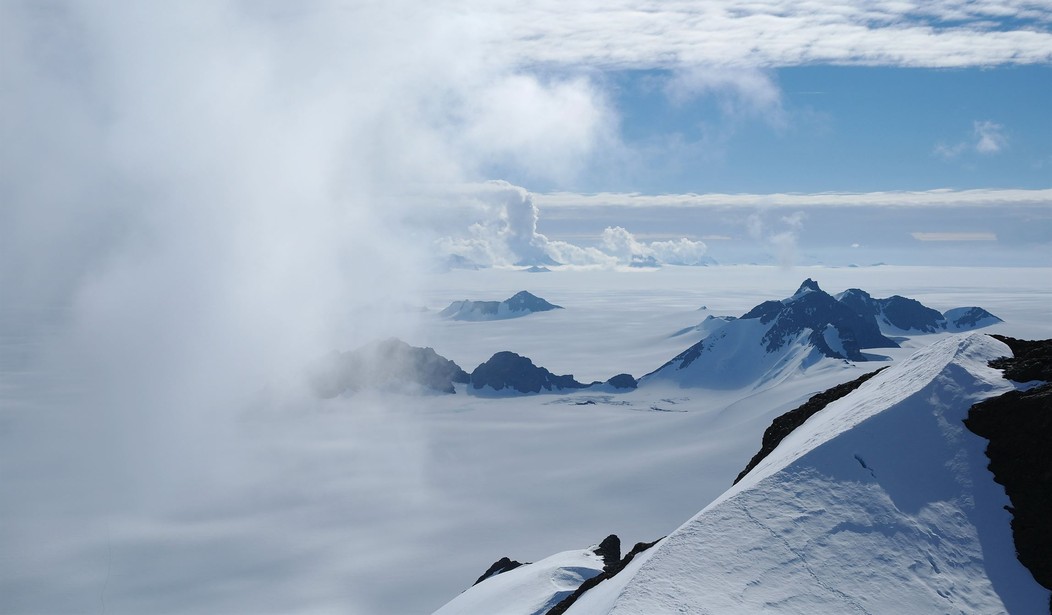The Antarctic is a mysterious place to most folks. A continent that covers the bottom of the world, a land of rock, ice, seals, and penguins, snow measured in feet: It's the coldest place on the planet, and there are several sheets of sea ice around much of the Antarctic shoreline.
Like most things on the earth, the extent of the Antarctic ice varies. Like the planet's climate, there are endless variables, and endless inputs into this vast, chaotic system. When humans muster up some hubris to develop models that they think can make predictions about this system, it can strike one as just a tad silly.
That doesn't stop climate scolds from using those short-term variables in the Antarctic ice to extrapolate all kinds of dire scenarios.
The Daily Sceptic's Environment Editor, Chris Morrison, has some details.
Remember all that alarmist guff about Antarctica sea ice recording lower levels in winter a couple of years ago? Georgina Rannard of the BBC wrote a story headed ‘Antarctic sea ice at “mind-blowing” low alarms experts‘, while Clive Cookson at the Financial Times gave us his suggestion that the area “faces a catastrophic cascade of extreme environmental events… that will affect the climate around the world”. The scare story caravan has moved on to pastures new these days, not unrelated to the fact that at the end of 2024 the extent of sea ice in Antarctica was roughly the same as the 1981 to 2010 average. According to the U.S.-based National Snow and Ice Data Centre (NSIDC), “this provides a sharp illustration of the high variability of Antarctica sea ice extent”. It does indeed, and it also provides us with a classic case study of how a short-term natural variation, well understood by many scientists, is weaponised by activists in science, politics and journalism to induce mass climate psychosis with the aim of promoting the political Net Zero lunacy.
In short, they are taking short-term variability - inevitable in a natural system - and extrapolating long-term trends. But there's a catch. The short-term trends are towards an increase in Antarctic ice. The legacy media, of course, are not reporting this, nor will they. It's outside the narrative, you see.
All of the confusion – designed to constantly promote Net Zero – arises because narrative-driven commentators assign most weather and climate changes to humans adding trace amounts of a trace gas into the atmosphere. It leaves little room for explaining the role of natural variation in the changing climate. Antarctica has not warmed for at least 70 years and a recent paper found that the summer temperature had shown a dramatic 1°C fall from 1977-1999, followed by a pause since the turn of the century. Another paper found that Antarctica sea ice extent had slowly increased since the start of continuous satellite recordings in 1979.
In other words, a lot of short-term variability. Not a lot of informative long-term trends. Now, there is long-term information as to the Antarctic climate. In the Cretaceous, Antarctica was covered not in ice but in temperate forests. Dinosaurs roamed the woods, and giant amphibians cruised the rivers. Then, Ocean currents changed, land masses moved; the ancient Tethys Ocean was broken up, and the North and South American continents connected up, blocking a warm equatorial current that held a lot of influence over the climate.
Those are long-term trends. Measuring temperatures and ice levels over the tiny span of modern human measurements is not. The proponents of this are not engaged in serious research; they are working backward from a conclusion in pursuit of an agenda.
The time may very well come when the climate scolds extrapolating wildly from variations in ice levels may be viewed with the same derision as the flat-earth nuts who claim that Antarctica is a giant ice wall.
See Related: Noted Climatologist Barbra Streisand Predictably Blames California Wildfires on Climate Change
The BBC Makes Some Perfectly Ridiculous Suggestions for Climate Lifestyle Changes - No, Thanks
Mr. Morrison concludes:
This case study of the recent hyped sea ice alarm in Antarctica shows how the scientific process is torn up and ridiculous claims, often produced by computer models, are made on the flimsiest of short-term evidence and observation. Lectures on disregarding short-term variations only resume when normal, and often cyclical, trends reappear and follow inconvenient directions.
Cherry-picking of data, careful tweaking of information, the control of the flow of information: Not science. Not open inquiry. Not a scrupulous examination of facts, of data. This is activism and fear-mongering. Nothing more. Nothing less.














